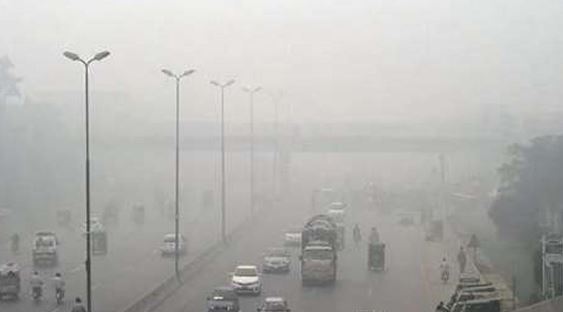Ghana’s capital, Accra, had appreciable levels of clean air, but the latest reports indicate that air quality has deteriorated to levels that place the city as the worst worldwide.
This poses health risks for individuals with conditions such as asthma, bronchitis and tuberculosis, with a high risk of increasing airborne diseases among the populace.
As of Monday, February 5, Ghana’s Air Quality Index (AQI) had risen to 302, a level described by experts as “hazardous”.
IQAir, a Swiss air quality centre that collates weather reports from various stations, suggests that Accra’s particle matter (PM) concentration (2.5) or pollution level is currently 50.4 times the WHO annual air quality guideline value.

Data obtained by The Ghana Report places Accra ahead of many cities with industries that emit heavy fumes, such as Dhaka, Mumbai, Shenyang and Delhi.
The worst affected areas in Ghana’s capital are the University of Ghana enclave, Kwashieman and the US embassy area at Cantonment.
The primary pollutants are black carbon, volatile organic compounds (VOCs), PM10, PM2.5, nitrogen dioxide (NO2), sulfur dioxide (SO2) and ozone (O3).
Examples of PM 10 are dust from construction sites, landfills and agriculture, wildfires and waste burning, industrial sources, wind-blown dust from open lands, pollen and fragments of bacteria.
Examples of PM 2.5 are tobacco smoke, cooking (e.g., frying, sautéing, and broiling), burning candles or oil lamps, and operating fireplaces and fuel-burning space heaters (e.g., kerosene heaters).

What are some health risks associated with breathing polluted air in Accra?
According to the WHO, almost every organ in the body can be impacted by pollution.
Due to their small size, some air pollutants can penetrate the bloodstream via the lungs and circulate throughout the body, leading to systemic inflammation and carcinogenicity.
Pollution is a risk for all-cause mortality as well as specific diseases.
The specific disease outcomes most strongly linked with exposure include stroke, ischaemic heart disease, chronic obstructive pulmonary disease, lung cancer, pneumonia, and cataracts (household air pollution only).
There is suggestive evidence also linking air pollution exposure with increased risk for adverse pregnancy outcomes (i.e. low-birth weight, small for gestational age), other cancers, diabetes, cognitive impairment and neurological diseases.
When are pollution levels at their most dangerous in Accra?
Observing the PM2.5 readings from 2020, it can be seen that Accra had some very high pollution episodes in the beginning of the year. January and February were the most polluted months of the year, coming in at 59.8 μg/m³ and 43.4 μg/m³ respectively, making January the most polluted month and sitting in the ‘unhealthy’ air pollution ratings bracket (55.5 μg/m³ and beyond, colour coded as red).
How do you protect yourself from air pollution in Accra?
-It is advised to close windows and doors at all times to prevent dirty outdoor air and do with indoor ventilation.
-Outdoor activities, including physical exercise, are not recommended.
-The public is also advised to wear pollution masks and use purifiers if possible.



